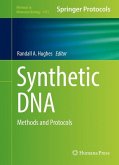The genomes of humans, as well as many other species, are interspersed with hundreds of thousands of tandem repeats of DNA sequences. Those tandem repeats located as codons within open reading frames encode amino acid runs, such as polyglutamine and polyalanine. Tandem repeats have not only been implicated in biological evolution, development and function but also in a large collection of human disorders. In Tandem Repeats in Genes, Proteins, and Disease: Methods and Protocols, expert researchers in the field detail many methods covering the analysis of tandem repeats in DNA, RNA and protein, in healthy and diseased states. This will include molecular genetics, molecular biology, biochemistry, proteomics, biophysics, cell biology, and molecular and cellular approaches to animal models of tandem repeat disorders. Written in the highly successful Methods in Molecular Biology(TM) series format, chapters include introductions to their respective topics, lists of the necessarymaterials and reagents, step-by-step, readily reproducible laboratory protocols, and key tips on troubleshooting and avoiding known pitfalls.
Authoratative and Practical, Tandem Repeats in Genes, Proteins, and Disease: Methods and Protocols aids scientists in continuing to study the unique methodological challenges that come from repetitive DNA and poly-amino acid sequences.
Authoratative and Practical, Tandem Repeats in Genes, Proteins, and Disease: Methods and Protocols aids scientists in continuing to study the unique methodological challenges that come from repetitive DNA and poly-amino acid sequences.








